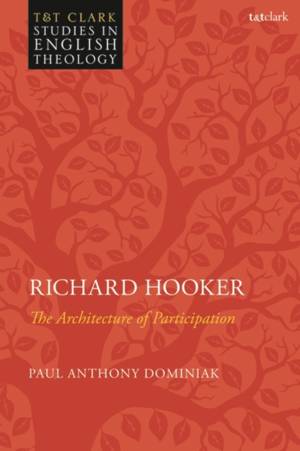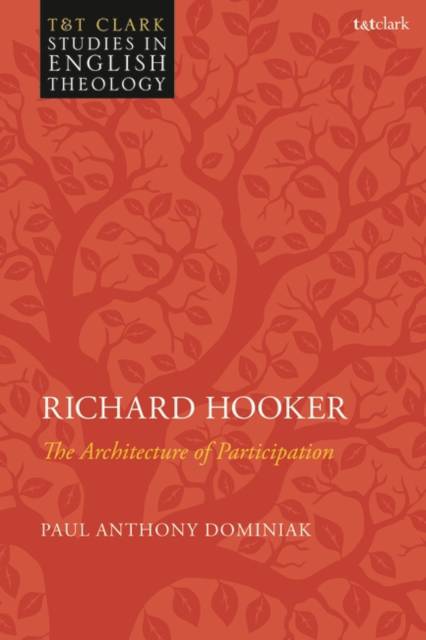
Bedankt voor het vertrouwen het afgelopen jaar! Om jou te bedanken bieden we GRATIS verzending (in België) aan op alles gedurende de hele maand januari.
- Afhalen na 1 uur in een winkel met voorraad
- In januari gratis thuislevering in België
- Ruim aanbod met 7 miljoen producten
Bedankt voor het vertrouwen het afgelopen jaar! Om jou te bedanken bieden we GRATIS verzending (in België) aan op alles gedurende de hele maand januari.
- Afhalen na 1 uur in een winkel met voorraad
- In januari gratis thuislevering in België
- Ruim aanbod met 7 miljoen producten
Zoeken
Omschrijving
Richard Hooker's Of the Laws of Ecclesiastical Polity has long been acknowledged as an influential philosophical, theological and literary text. While scholars have commonly noted the presence of participatory language in selected passages of Hooker's Laws, Paul Anthony Dominiak is the first to trace how participation lends a sense of system and coherency across the whole work.
Dominiak analyses how Hooker uses an architectural framework of 'participation in God' to build a cohesive vision of the Elizabethan Church as the most fitting way to reconcile and lead English believers to the shared participation of God. First exploring Hooker's metaphysical architecture of participation in his accounts of law and the sacraments, Dominiak then traces how this architecture structures cognitive participation in God, as well as Hooker's political vision of the Church and Commonwealth. The volume culminates with a summary of how Hooker provides a salutary resource for modern ecumenical dialogue and contemporary political retrievals of participation.
Dominiak analyses how Hooker uses an architectural framework of 'participation in God' to build a cohesive vision of the Elizabethan Church as the most fitting way to reconcile and lead English believers to the shared participation of God. First exploring Hooker's metaphysical architecture of participation in his accounts of law and the sacraments, Dominiak then traces how this architecture structures cognitive participation in God, as well as Hooker's political vision of the Church and Commonwealth. The volume culminates with a summary of how Hooker provides a salutary resource for modern ecumenical dialogue and contemporary political retrievals of participation.
Specificaties
Betrokkenen
- Auteur(s):
- Uitgeverij:
Inhoud
- Aantal bladzijden:
- 240
- Taal:
- Engels
- Reeks:
Eigenschappen
- Productcode (EAN):
- 9780567685070
- Verschijningsdatum:
- 12/12/2019
- Uitvoering:
- Hardcover
- Formaat:
- Genaaid
- Afmetingen:
- 152 mm x 236 mm
- Gewicht:
- 612 g

Alleen bij Standaard Boekhandel
+ 508 punten op je klantenkaart van Standaard Boekhandel
Beoordelingen
We publiceren alleen reviews die voldoen aan de voorwaarden voor reviews. Bekijk onze voorwaarden voor reviews.









